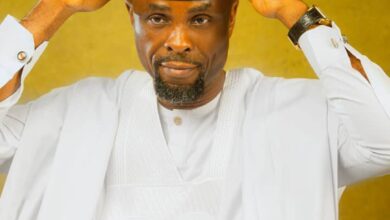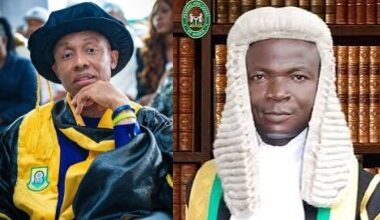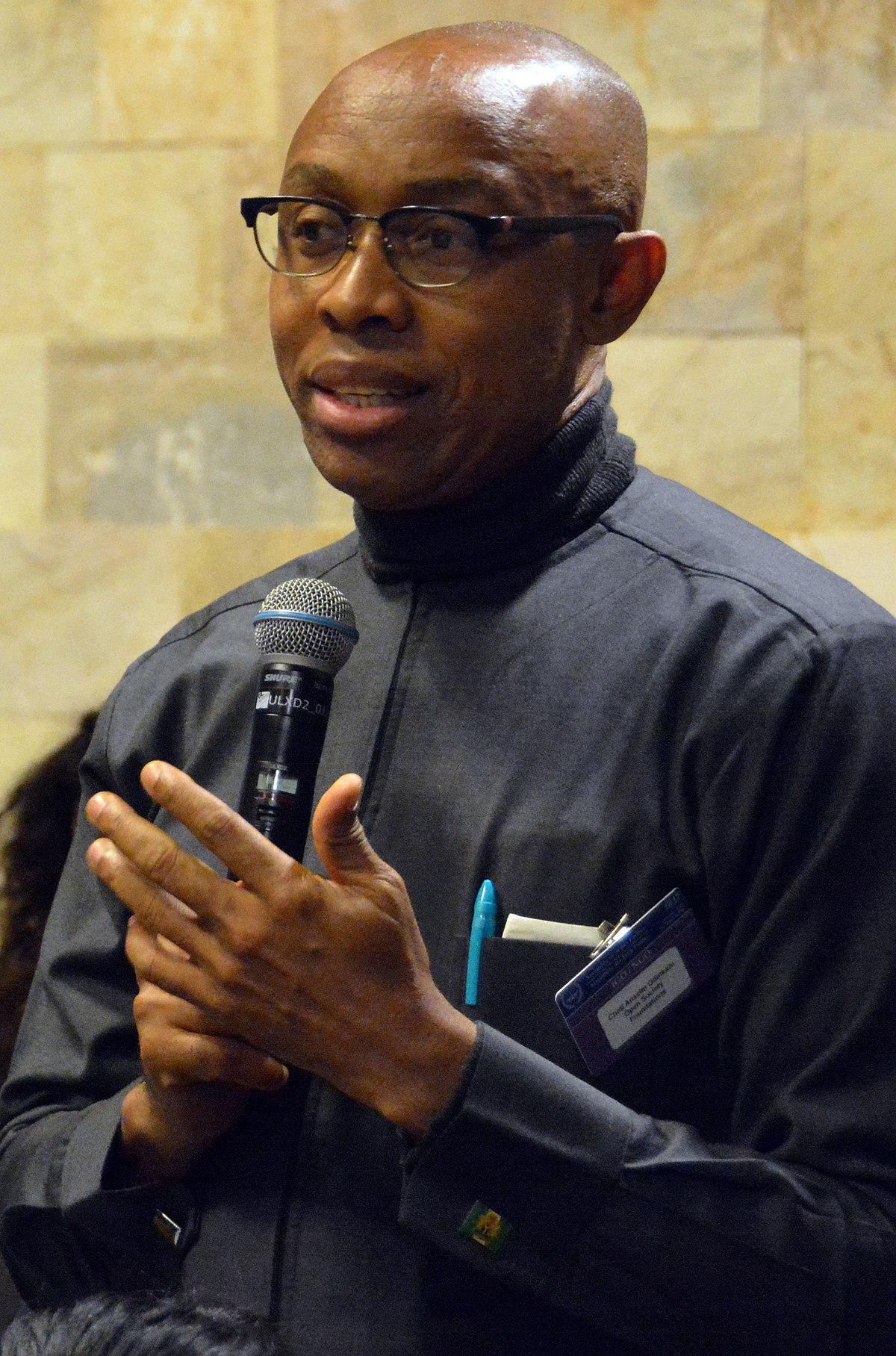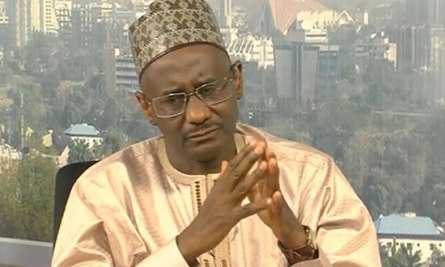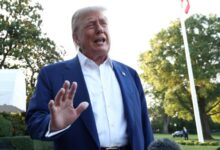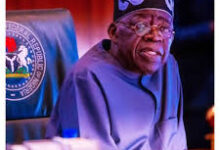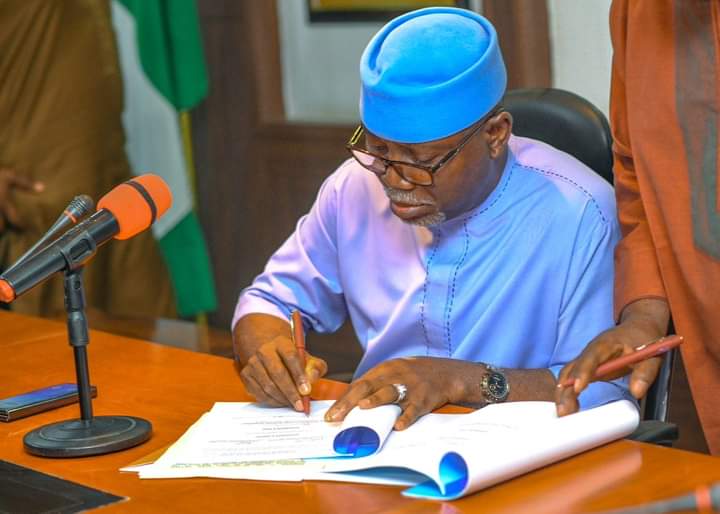Minister Pantami’s case and the ‘war on terror witchhunt’ in Nigeria

By ANDREA BRIGAGLIA
“Pantami is no “terrorist monster”. He is a man who, in 2006, was trapped in the volatile world of the global Salafi da‘wa in the twenty-first-century; who had little knowledge of the global politics of the Muslim world; who was carried out by emotions; and whose audience expected him to enlighten it on matters he had a limited understanding of as them. Those who would like to see him stoned today, should honestly ponder: are they so sure that the closets of the Christian preachers of Zonkwa or Yelwa Shendam are cleaner than his?”
Following the publication of a Daily Independent article alleging that Minister Pantami is, or has been in the past, on a United States’ “terrorist watchlist”, the Nigerian social media have started to circulate quotes of an article I had published in 2019, in which I had provided an analysis of some of the public speeches Pantami had given in the early-to-mid 2000s. From the social media, references to that article have also filtered to the national newspapers.
While I remain committed to my criticism of what I see as the many problematic aspects (both in content and form) of those speeches, I also believe that the core of my analysis risks to get lost in the current mediatic brouhaha. I am thus grateful to the Daily Trust for giving me an opportunity to serenely express my views on the matter.
Firstly, I do not think that Nigerians should take a “US terrorist watchlist” too seriously. History provide ample evidence of real, former members of terrorist organizations who have become key allies of the United States and the West, not to talk of presumed ones. Think of Menachem Begin, member of the Irgun, the organization that in 1948 was responsible for the bombing of the King David Hotel in Jerusalem; in 1978, he became Israel’s Prime Minister. Or think, for a more recent example, of Abu Muhammad al-Golani, former leader of Al-Qaeda in Syria; in a recent interview with FrontLine magazine, he has clearly exposed the convergence of his interests with those of the West in the Syria war. In other words, Minister Pantami’s speeches or actions should be debated by Nigerians on the grounds of whether or not they constitute a threat to Nigerian interests and values, and not to American ones.
Secondly, the speeches that are now being dissected in the public space were all in the public domain, well before the Nigerian media “discovered” them, and well before I wrote my 2019 article. They are mostly available online, on internet platforms run by organizations to which Pantami is closely connected. Nothing new, then – only a fragment of a complex historical process (the transformation of Islamic discourses in Nigeria during the 2000s), a process that needs to be explained and made sense of.
Thirdly, it is hard to believe that Minister Pantami is currently included in any “United States terror watchlist” as claimed by some. Pantami has been a key actor, from the late 2000s onwards, in Nigeria’s de-radicalization programmes. These, as demonstrated by many available documents (part of which I discuss in some of my most recent articles), had been in place since the early 2000s, and were loosely coordinated – through the mediation of the Nigerian political authorities – with the American “War on Terror”. The leaders of Izala and Ahlus Sunna have always played a central role in this strategy. Hence the profound hatred Yusuf nurtured against them: the “government scholars” were in charge of providing the national security with intelligence on “extremist” Salafi offshoots (the “Nigerian Taliban” first; Muhammad Yusuf later); the security used this information to devise its counter-terrorism strategy, in partial coordination with external partners, including the US.
But what is the War on Terror, and why do I insist that the latter is the only meaningful context to make sense of the rapid transformation of the content of the public speeches of Minister Pantami (as well as of other Nigerian Islamic scholars) on Global Jihad, from endorsement, to avoidance, to opposition?
The War on Terror is not, as the fairy tales broadcasted by (Western as well as, increasingly, non-Western) security think-thanks would want it to be, a mission aimed at preventing any type of violence or terrorism. It is a complex structure that, by leveraging on the opportunity provided by the emergence of Al-Qaeda’s Global Jihad, aims at empowering the traditional allies of the US in the Middle East (and, by extension, Muslim communities in Africa and Asia); forcing non-aligned countries to cooperate in security partnerships coordinated by the US; and ensuring, through the securitization of the political landscapes of the latter, US control over their destinies.
As it is no secret that the main foe of the United States in the Middle East has been and continues to be Iran (as well as, more broadly, Russia-aligned states), the War on Terror could not but translate, amongst other things, in an empowerment of the Kingdom of Saudi Arabia, promoted as the leader of a US-aligned “Sunni block” aimed at checking Iranian influence worldwide. The problem, for the US, was that, while the Saudi Kingdom was perceived as the most trusted US ally in the Muslim world, both the Saudi-aligned religious scholars and the Alqaeda leaders claimed to be the genuine representatives of the same religious trend within Islam, that is, Salafism. The Saudi War on Terror strategy, therefore, could not translate into a direct support of Salafism per se, but it consisted into a mission (by coercive means inside the Kingdom, and by a soft power strategy abroad, mediated through the agency of the Salafi religious scholars), to “purge” global Salafi constituencies from anti-American and pro-Alqaeda sentiments.
Most Nigerian scholars, willingly or unwillingly, gradually chose the Saudi-aligned camp to the Jihadi-aligned camp, and Pantami is definitely one of them. Embracing the Islamic version of the War on Terror discourse promoted by the Saudi state, however, has come at a huge cost for the religious scholars. Not only, in fact, it has exposed them to the wrath of their Jihadi opponents (we all know that Minister Pantami himself has been the object of direct death threats by Shekau). The problem was also that the Saudi War on Terror discourse was based on an ultra-monarchic political theology that labeled as “terrorist” (or Kharijite) any Islamic group that deviates from the principle of absolute obedience to the King (wali al-amr). Such a political theology resulted in edicts that openly branded as haram things like constitutionalism and voting in democratic elections. These edicts were expressed in countless fatwas promulgated over the years by the likes of Bin Baz, Al-Albani, Saleh al-Fawzaan, etc., all of whom are foundational references for all Salafis, and whose symbolic authority was too engrained to be challenged by Nigerian Salafis like Pantami.
This political theology emerging in the context of the Saudi War on Terror, meant that mainstream Islamic political parties that, like the Muslim Brothers of Egypt, agitated for a constitutional Islamic Republic, were labelled as outright kuffar (unbelievers) and treated, in the Kingdom, as virtual equivalents of Alqaeda. Independent-minded Salafi scholars of Saudi Arabia like Salman al-Ouda, who did not side with Alqaeda but also refused to express uncritical support for the Kingdom, were victimized too: today, al-Ouda is in jail, branded as a “terrorist”, with a death sentence pending on him.
As odiously repressive as it was, the political theology promoted by the Salafi leaders loyal to the Kingdom could, to some extent, guarantee stability in the context of an absolute monarchy like Saudi Arabia. But once it was exported into a constitutional democracy like Nigeria, it became a recipe for chaos. In Nigeria, in fact, paradoxically, the fatwas of Bin Baz and Fawzaan against democracy and constitution empowered Yusuf, and disempowered people like Pantami who were taking up the delicate role to argue against him.
It is in this context, that all the major Salafi leaders worldwide, Nigeria included, were subjected to multiple pressures (loyalty to the dream of Global Jihad? Or loyalty to the pragmatic diktats of the Saudi-aligned scholars?) pulling them into opposite directions. And it is this political context that provided the background for the speech by Pantami that I analyzed in my 2019 article. Politics shapes religious discourse, as much as religious leaders, who purportedly speak of eternal, unchanging truths, find it hard to admit it.
The choice of embracing the Saudi War on Terror discourse also meant that the public engagement of mainstream Nigerian Salafi leaders like Pantami, had to be purged from anything that could be considered as controversial. As much as I disapprove of the recklessly pro-Jihadi statements in which Pantami and the likes occasionally indulged in, I am also baffled at the uncritical passivity with which the Muslim public of Nigeria has swallowed the progressive emasculation of Islamic theological and political discourses that, as a result of this gradual “purging”, have occurred during the last fifteen years.
Gone are the days when the speeches of people like the late Jaafar Adam and Auwal Albani resonated with powerful critiques of the United States’ foreign politics. And who, of the Nigerian scholars, dares defending the Egyptian Muslim Brothers today? After all, the latter have been branded as kuffar by the Saudi Salafi scholars, so no blame can be put on the Sisi government for their repression… And who dares even mentioning the name of “Palestine” today? After all, it has been declared an “atheist” nationalist cause by the Saudi ulama whose government’s ties to Israel are not a mystery anymore, so Muslims can (should, in fact) forget about it…
By buying into the false premise that there is no alternative to the binary option of fanatical Jihadism vs uncritical subservience to the United States’ agenda, we have closed any space for a critical, counter-hegemonic, democratic and non-Jihadi Muslim discourse to be voiced in our communities.
The Suwaye Taliban speech was delivered by Pantami in 2006. At that time, the Salafi constituencies of Saudi Arabia were being lacerated by an internecine war between Alqaeda-aligned groups (which in 2003, had started a campaign of bombings targeted at Saudi security forces); the Saudi-aligned scholarly establishment (which approved the Saudi alliance to the US and the repression of any dissenting voice); and independent-minded scholars like Salman al-Ouda, who did not align with the Jihadis but were targeted by the Saudi state in the name of the latter’s “War on Terror”. This intra-Salafi war was utterly absent from Pantami’s Suwaye Taliban speech. In that speech, by generously distributing his praises, at the same time, to the Saudi Kingdom, to Alqaeda, and to scholars like al-Ouda, Pantami was selling to his Nigerian audience the fairy tale of a perfect Salafi utopia made of united ranks of “upholders of the Sunna” engaged in a sincere confrontation with the unbelievers. Historically, this speech is a priceless document, for it shows the degree to which sharply contradicting political theologies, all re-branded as Islamically-sanctioned perennial truths, overlapped in the religious discourses of the Nigerian Salafis of the time.
In the same speech Pantami, in a remark that was ostensibly directed at Yusuf’s “Boko Haram”, invites his audience to equip themselves with modern sciences like medicine and engineering, so as to prepare to transform Nigeria into a successful Islamic country like the Taliban’s Afghanistan. The most obvious fallacy in this statement is that being turned into a disaster of the size of Afghanistan, is something that one would not wish even to his worst enemies, ballantana Nijeriya. The second, less apparent, fallacy of that statement is that Pantami’s speech proved, by contrast, the extent to which Muslims are in a desperate need of a serious engagement with the social sciences and the humanities. In particular, with its chaotic amalgam of geopolitical incongruities, naïve wishful thinking and outright lies on the Afghanistan war and Saudi politics, it demonstrated the need for Muslims to understand the ABC of global history and international relations which shapes the lived realities of the “Muslim world”. Only this awareness will grant Muslims the ability to exercise some control over their destiny, preventing them from continuing to be used as the playground for the hegemonic struggles of the powers that be.
Was I then in 2019, or am I today, advocating for a witch hunt against Pantami or other, Salafi or non-Salafi scholars, who aired similar speeches? Do I want to bring the “War on Terror” censoring discourse in Nigeria?
Pantami is no “terrorist monster”. He is a man who, in 2006, was trapped in the volatile world of the global Salafi da‘wa in the twenty-first-century; who had little knowledge of the global politics of the Muslim world; who was carried out by emotions; and whose audience expected him to enlighten it on matters he had a limited understanding of as them.
Those who would like to see him stoned today, should honestly ponder: are they so sure that the closets of the Christian preachers of Zonkwa or Yelwa Shendam are cleaner than his?
Those who, on the contrary, labelling any attempt to subject his speeches to honest scrutiny as a conspiracy to “crucify” him, should remember how unsensitively and inhumanely they were cheering, on social media, when El-Zakzaky was being victimized as the “terrorist”, the coach of Muhammad Yusuf and Boko Haram, the epitome of all evil. Was this not a primary example of “War on Terror 101”?
My 2019 paper was written at a time when a crude witch-hunt against the Shiite members of the IMN was in full swing in Nigeria. Killed in their hundreds in Zaria in 2015; their leader incarcerated for years in spite of an order to release him issued by the High Court; single-handedly finger-pointed as the “origins of the Boko Haram problem” during a conference held at Bayero University Kano in 2018; eventually banned and labeled as a “terrorist organization” by an ad hoc “War on Terror” legislation issued by the Buhari administration.
This was, it would be disingenuous to deny it, a fragment of the wider effort by Saudi Arabia and its allies to play the “War on Terror card” in order to curb the influence of Iran worldwide. It was the Saudi Crown Prince Muhammad Bin Salman who, in what was obviously a reference to the IMN/Zakzaky case, publicly boasted, in 2018, about his success in “breaking the influence of Iran” in Nigeria.
We cannot expect any good to come from witch hunts, whether from those addressed at Zakzaky yesterday, or from those addressed at Pantami today. In a nutshell, my 2019 article was a critique of what I saw as the gradual emergence in Nigeria of an obscene witch-hunt that expressed by the Nigerian mainstream Salafis under the guise of an Islamic “theology of moderation”, but that was designed to fit a hegemonic discourse promoted by the US/Saudi “Holy Alliance” in the name of the “War on Terror”. This discourse, once exported in Nigeria, had found in the local Shiites (whose theology I personally find unappealing, but whose courage to speak truth to power I deeply respect) a cheap scapegoat. The article was concluded by the following call, which I would like to make once again:
“Nigerian Muslims will continue to create their future by negotiating between utopias and lived realities, and both Salafis and Shiites can play a positive role in this process. For this to happen, three steps seems to be necessary: (1) the Nigerian government should strive to relate to both Iran and Saudi Arabia (as well as Russia and the US) with cautious cordiality, carefully avoiding being turned into a new playground for Middle Eastern geo-politics and sectarian wars; (2) Zakzaky should be released and undergo a fair trial, while the IMN should be reintegrated into the wider Muslim community and allowed to contribute to the national debate (being also freely criticised by other Muslims when necessary); (3) the mainstream Nigerian Salafi leadership should undertake a honest process of clarification to its own public, of the tumultuous ideological shift of which it has been the theatre over the last two decades.
When I wrote the above lines, I was sceptical that anything like this was bound to happen any time soon. I hope the time will be ripe one day.
By Dr Andrea Brigaglia, from University of Naples “L’Orientale”


